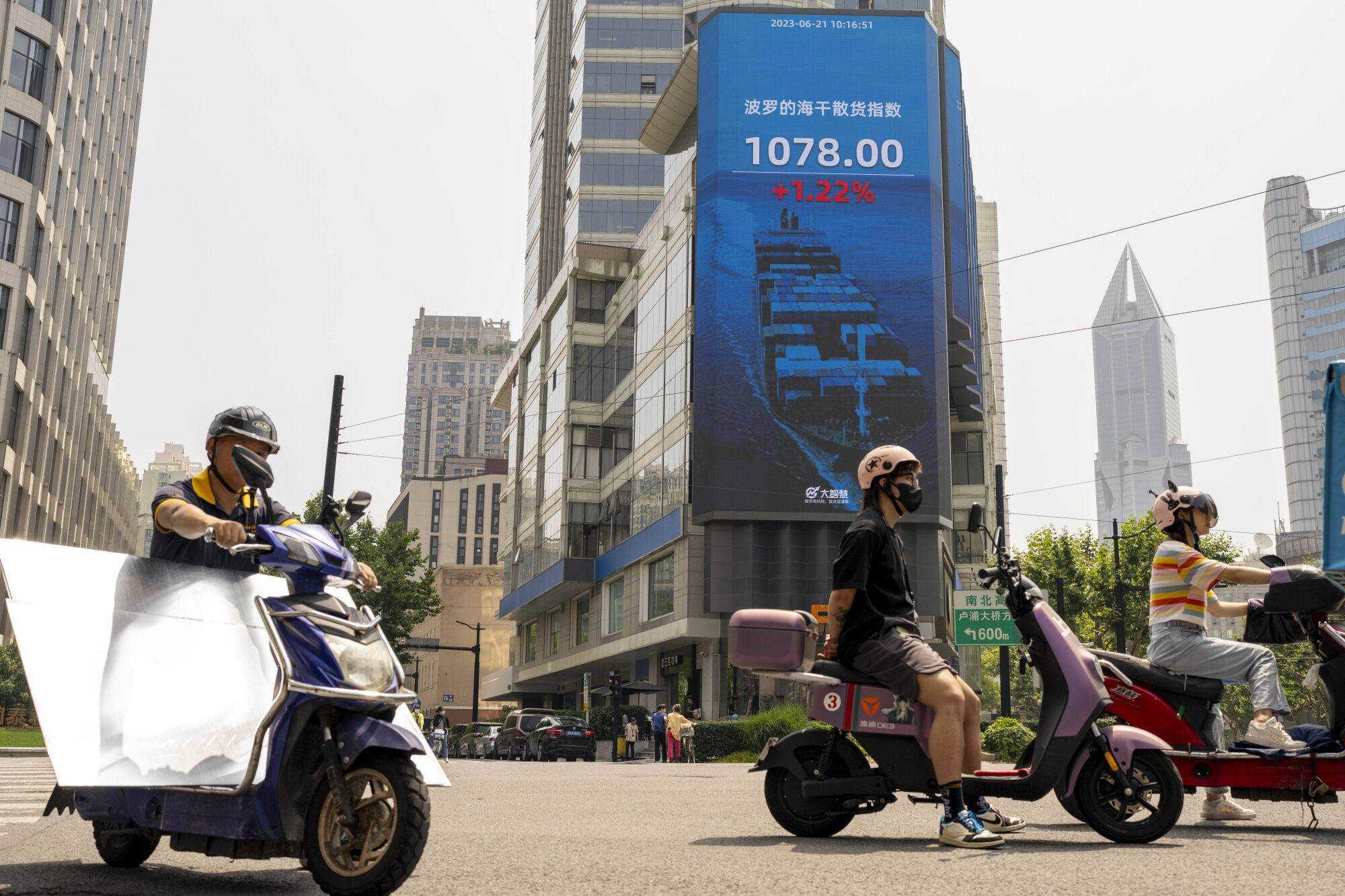
Chinese stock markets reopen after holiday break to face fresh bout of selling as Beijing’s stimulus support disappoints
- Key stock market benchmarks erase almost half the gains built on the optimism from the economic reopening following China’s removal of Covid restrictions last year
- The sell-off reflects investor frustration with policy measures unveiled thus far, including a small cut in benchmark lending rates and piecemeal fiscal measures
Chinese stocks extended losses forcing market benchmarks to breach significant technical milestones on Monday amid growing realisation that Beijing will refrain from any big-bang stimulus to revive economic growth. Analysts say investors will have to rein in their expectations about any aggressive government support even after China’s weaker-than-expected economic reopening.
The CSI 300 Index fell by as much as 1.6 per cent on Monday, as China’s onshore markets resumed trading after a two-day closure for the Dragon Boat Festival. It closed 1.4 per cent lower at a level not seen since June 7 and capped a fourth straight day of declines, its longest losing streak since May 19. It also dipped below the 200-day moving average, a technical barometer that provides support and resistance. Levels above the mark signal an uptrend, while below that a downtrend.
The CSI 300 Index, which tracks the 300 most valuable stocks on the Shanghai and Shenzhen exchanges, has dropped nearly 9.3 per cent from a January high, erasing almost half the gains fuelled by the optimism around the economic reopening following China’s removal of the Covid restrictions late last year.
The fresh bout of selling is evidence that investors are frustrated with what policymakers have unveiled so far to revive growth, including a 10 basis-point cut in benchmark lending rates and some piecemeal fiscal measures such green-energy vehicle subsidies. Both Citic Securities and Shenwan Hongyuan Group say that investors will need to reset their policy expectations, with the government prioritising sustained and high-quality growth.

“Policies will not be absent, but they will hardly exceed aggressive market expectations,” said Qiu Xiang, a Beijing-based strategist at Citic Securities, the nation’s biggest publicly traded brokerage. “Odds are low that the government will pursue strong stimulus measures and a strong recovery.”
The world’s second largest economy is grappling with an ageing population, high levels of debt, widespread youth unemployment and a property crisis, at a time when global financial markets are undergoing unprecedented changes and this means a return to the days of heady growth are over.
“We have long held the view that China is entering a lower growth channel over the medium term,” said Morgan Stanley analysts in a note which expects gross domestic product (GDP) growth to decline structurally to an average of 4.5 per cent over 2023-27. “Embedded within that average is a growth forecast of 5.7 per cent in 2023, slowing to around 3.5-4 per cent by 2027, with a further dip to growth rates of around 3 per cent by 2030.”
Capital Economics analysts said the Chinese economy requires additional fiscal support but there has been little movement on that front as the EV tax breaks will not provide immediate economic support.
“Policymakers may simply need more time to draw up specifics of a fiscal package. They have just begun an audit of local government debt and may be awaiting its findings before deciding on the best course of action,” they said in a report. “While the timing is uncertain, we still expect some additional fiscal stimulus this year.”
The analysts said that while officials may opt to experiment with greater support for consumers, the bulk of the support is still likely to take the form of infrastructure spending.
Reflecting some of that disappointment, a sub-gauge of consumer-staples stocks on the index tumbled 1.7 per cent on Monday. It also reflects the lacklustre consumption data during the three-day Dragon Boat holiday and the partial recovery in tourism revenue.
More disappointment is in the pipeline – a purchasing managers’ index due on Friday will probably show that the manufacturing industry contracted for a third consecutive month in June.
All the weak data underscores insufficient domestic demand that has hampered the post-Covid recovery, according to Shen Chao, a strategist at HSBC Jintrust Fund Management in Shanghai.
“Stabilising policies can ease the downside pressure on the economy, but that cannot lead to expectations about sustained improvements in the property market and consumption,” said Fu Jingtao, a strategist at Shenwan Hongyuan in Shanghai. “Under such circumstances, the market may see some rebound. But it will be linked to thematic investment ideas like the digital economy and AI.”
The cuts in the loan prime rates (LPR), the de facto borrowing cost, this month will not have a significant impact on the economy any time soon, as existing mortgage borrowers are able to enjoy lower rate only starting next year, according to Nomura.
The Japanese investment bank predicted that China’s central bank would cut the one-year LPR by a combined 20 basis points in the second half and the reserve requirement ratio (RRR) as well. But all these measures are not insufficient to revitalise growth as developers are unlikely to be enthused by rate cuts and the RRR cut is simply a symbolic move at a time when local governments’ borrowing is constrained by falling land revenues.
Beijing may roll out a package of follow-up measures to stabilise growth going forward, which will probably include construction of more charging poles, issuance of consumer coupons and tax breaks on targeted industries, according to Citic Securities.
“Still, it will take time for these measures to be rolled out,” said Qiu at the brokerage. “More policy packages and tone setting will not come until the Politburo meeting in late July.”

